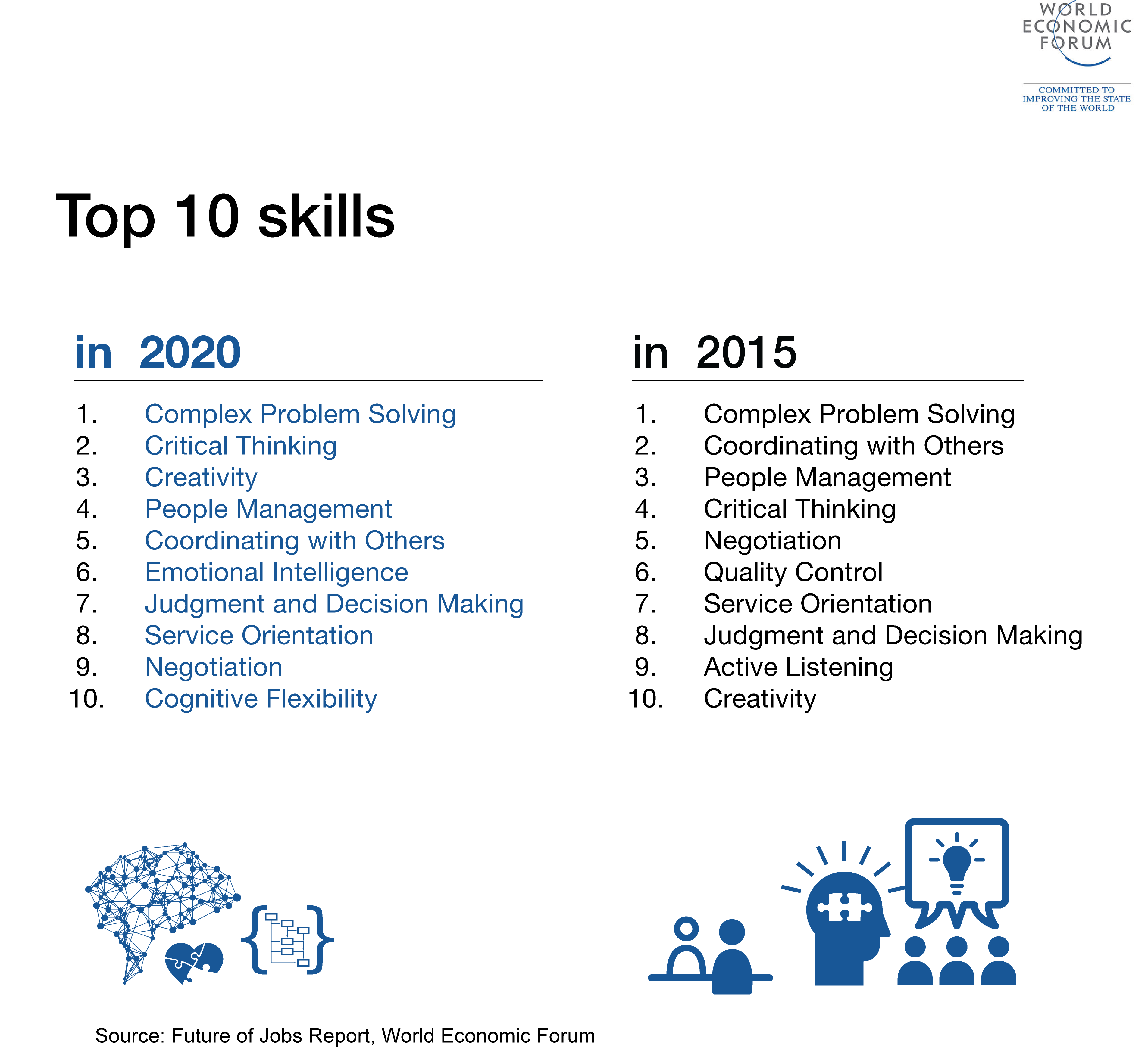The 10 skills you need to thrive in the Fourth Industrial Revolution

Image: REUTERS/Sergei Karpukhin
Five years from now, over one-third of skills (35%) that are considered important in today’s workforce will have changed.
By 2020, the Fourth Industrial Revolution will have brought us advanced robotics and autonomous transport, artificial intelligence and machine learning, advanced materials, biotechnology and genomics.
These developments will transform the way we live, and the way we work. Some jobs will disappear, others will grow and jobs that don’t even exist today will become commonplace. What is certain is that the future workforce will need to align its skillset to keep pace.
A new Forum report, The Future of Jobs, looks at the employment, skills and workforce strategy for the future.
The report asked chief human resources and strategy officers from leading global employers what the current shifts mean, specifically for employment, skills and recruitment across industries and geographies.

What skills will change most?
Creativity will become one of the top three skills workers will need. With the avalanche of new products, new technologies and new ways of working, workers are going to have to become more creative in order to benefit from these changes.
Robots may help us get to where we want to be faster, but they can’t be as creative as humans (yet).
Whereas negotiation and flexibility are high on the list of skills for 2015, in 2020 they will begin to drop from the top 10 as machines, using masses of data, begin to make our decisions for us.
A survey done by the World Economic Forum’s Global Agenda Council on the Future of Software and Society shows people expect artificial intelligence machines to be part of a company’s board of directors by 2026.
Similarly, active listening, considered a core skill today, will disappear completely from the top 10. Emotional intelligence, which doesn’t feature in the top 10 today, will become one of the top skills needed by all.
Disruption in industry
The nature of the change will depend very much on the industry itself. Global media and entertainment, for example, has already seen a great deal of change in the past five years.
The financial services and investment sector, however, has yet to be radically transformed. Those working in sales and manufacturing will need new skills, such as technological literacy.
Some advances are ahead of others. Mobile internet and cloud technology are already impacting the way we work. Artificial intelligence, 3D printing and advanced materials are still in their early stages of use, but the pace of change will be fast.
Change won’t wait for us: business leaders, educators and governments all need to be proactive in up-skilling and retraining people so everyone can benefit from the Fourth Industrial Revolution.
The Annual Meeting is taking place in Davos from 20 to 23 January, under the theme “Mastering the Fourth Industrial Revolution”.
Don't miss any update on this topic
Create a free account and access your personalized content collection with our latest publications and analyses.
License and Republishing
World Economic Forum articles may be republished in accordance with the Creative Commons Attribution-NonCommercial-NoDerivatives 4.0 International Public License, and in accordance with our Terms of Use.
The views expressed in this article are those of the author alone and not the World Economic Forum.
Stay up to date:
Future of Work
The Agenda Weekly
A weekly update of the most important issues driving the global agenda
You can unsubscribe at any time using the link in our emails. For more details, review our privacy policy.
More on Forum InstitutionalSee all
Gayle Markovitz
December 9, 2024







